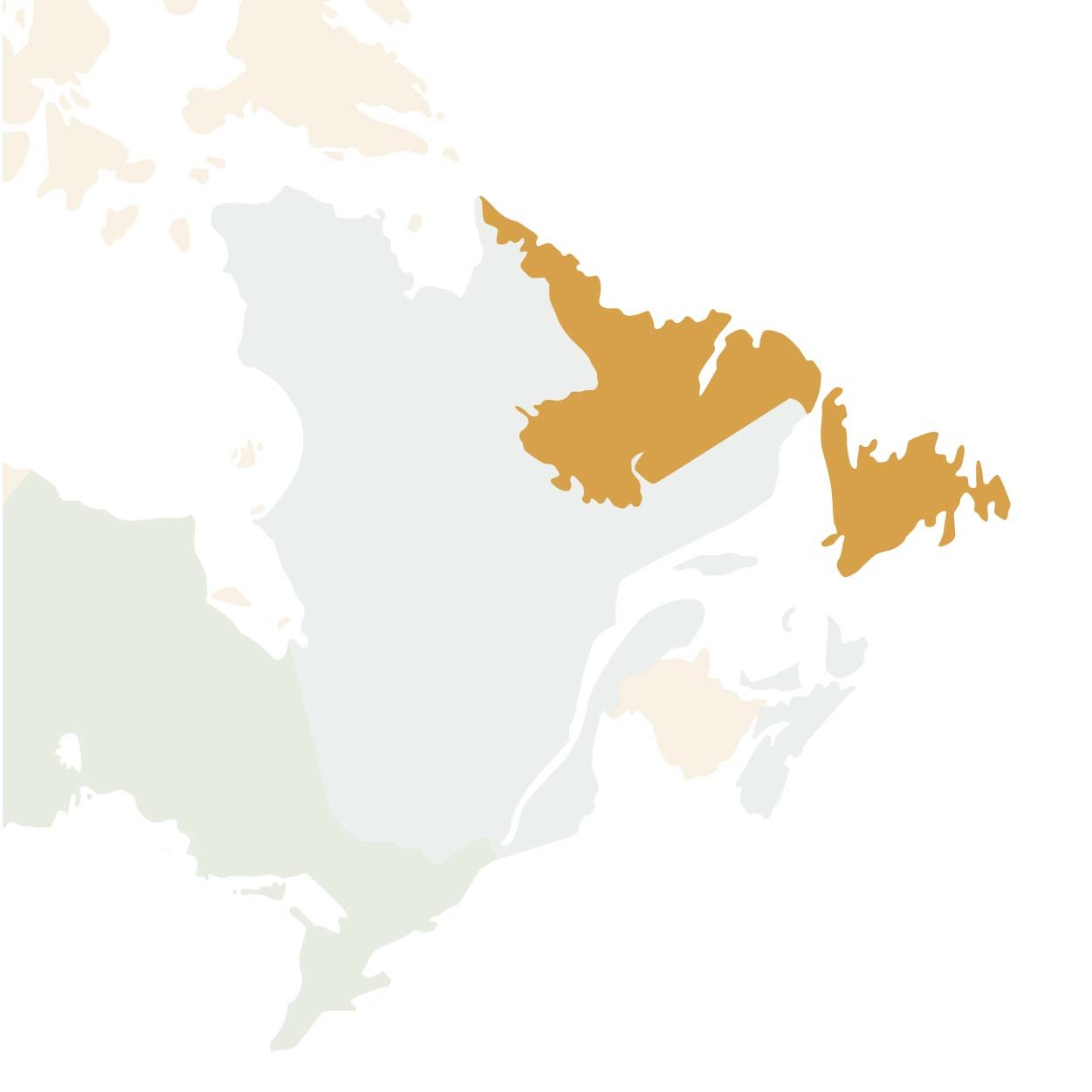Farm Grants in Newfoundland and Labrador
You Focus on Farming, We Get You Funded.
Farming in Newfoundland and Labrador offers unique opportunities, but accessing the right funding can make a significant difference in your success. Whether you’re expanding your operations, adopting sustainable practices, or investing in innovative technology, there are a wide range of grants specifically designed to support agricultural businesses in Newfoundland and Labrador.
Each province has its own set of funding priorities, shaped by regional industries and community needs. From government programs to industry association grants, Newfoundland and Labrador offers targeted support for various commodities and practices. In addition to provincial opportunities, federal funding is available to help farmers across the country enhance infrastructure, boost productivity, and build resilience.
At Farm Grant Finders, we make it easy to find and secure the funding that best fits your farm’s goals. Let us help you navigate the grant landscape and maximize your opportunities.

Search for Grants in Newfoundland & Labrador
Supports the adoption of clean technologies in Canada’s agriculture and agri-food sector to enable a low-carbon, sustainable economy.
Provides non-repayable contributions to help Canadian dairy processors manage surplus solids non-fat through equipment upgrades and facility improvements.
Offers repayable contributions of up to $5M to commercialize or demonstrate innovative, commercial-ready agri-tech solutions that enhance sustainability and competitiveness in Canada’s agri-food sector.
Supports food security and access to local, nutritious, and culturally appropriate food through food production-focused infrastructure for equity-deserving groups, particularly Indigenous and Black communities.
Supports projects that empower Indigenous Peoples and other underrepresented groups in Canadian agriculture by improving sector participation, training, leadership, and career awareness.
Supports industry-led marketing and promotional activities that increase exports and global visibility of Canadian agri-food, seafood, and agricultural products.
Supports Indigenous communities and entrepreneurs with funding and partnerships to launch or scale agriculture and food system projects across Canada.
Helps Canadian youth (ages 15 to 30) build skills and work experience needed to successfully enter the labour market.
Supports efforts to build public trust in Canadian agriculture by promoting appreciation of farmers and transparency in food production.
Supports promotional efforts to grow domestic demand for Canadian turkey and chicken, as part of Canada’s commitment to compensate supply-managed sectors under CPTPP.
Offers short-term financial assistance to licensed Canadian wineries facing new and ongoing challenges impacting their competitiveness.
Supports Canadian smart farms in evaluating emerging agricultural technologies and building collaborations that drive innovation, adoption, and agtech workforce development.
Provides federal funding to help food processing companies safeguard workers’ health during COVID-19 and invest in modernizing facilities to secure Canada’s food supply.
Supports Canadian businesses in reformulating, scaling, and strengthening the plant-based and agrifood ecosystem through innovative ingredient use and supply chain improvements.
Supports projects that enhance sector capacity, build public trust, and increase awareness of Canadian agriculture through training, knowledge sharing, and engagement — with a focus on national-level initiatives and inclusivity.
This program helps Canadian agricultural industries build market confidence and resilience by supporting the development of assurance systems and sectoral insurance tools that enable SMEs to meet domestic and international market standards.
Supports farmers and new entrants in Newfoundland and Labrador with funding for land development and infrastructure projects that improve food self-sufficiency and sector growth.
Provides Newfoundland and Labrador farmers with discounted limestone to improve soil productivity and fertilizer efficiency by reducing soil acidity.
Provides non-repayable funding to help businesses in Newfoundland and Labrador start, scale, innovate, and grow their sales locally and globally.
Supports projects that strengthen Newfoundland and Labrador’s oil and gas supply chain while encouraging diversification into other energy sectors.
Supports businesses, institutions, and Indigenous/rural proponents in Newfoundland and Labrador transitioning to a green economy through funding for operations, innovation, and supply chain improvements.
Supports projects in Newfoundland and Labrador that reduce greenhouse gas (GHG) emissions, improve energy efficiency, and create economic growth across key sectors.
An employer-led program that offsets training costs to help businesses upskill current staff or hire and train unemployed workers in Newfoundland and Labrador.
Non-repayable funding for non-commercial entities in Newfoundland and Labrador to conduct research and innovation projects that drive economic development and strengthen local R&D capacity.
